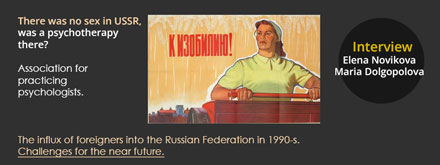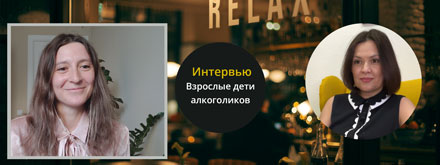Nifont Dolgopolov was not only my father but also played several other significant roles in my life; as mentor, guide, as trickster and ideologue.
I consider myself fortunate to call Nifont my mentor and teacher owing to his profound influence on me as a psychotherapist, coach and entrepreneur.
I do not know if others associate his name with entrepreneurship but as I knew him, he opened up this entrepreneurial thinking as a field of activity, a way of being, an opportunity to contribute to the world; to make a cultural and historical contribution, perhaps an impact on the development of our profession and to represent our country on the global stage.
My sense of Nifont was his commitment to creating a familial, informal, cohesive atmosphere in the organizations that he created. It was his style of leadership, sharp mind, diligence, and resourcefulness, even his occasional anarchy that he sometimes provoked yet he =]never undermined the cohesion of his team.
I find it difficult to label the people he led as his employees or subordinates—these categories are too stratified and ill-suited to the spirit of the teams he constructed around himself. Nifont created entire worlds that brought together people, harnessed their abilities, their emotional and expressive selves, an incubator to create the enduring.
Frequently during his lifetime and again at his memorial service I heard many people share a sense of owing so much to Nifont for helping them develop an opportunity-filled career path, in some cases to realize their own dreams.
As his daughter, I also learnt that if you have a good idea, believe in certain values, are disturbed that something in the world is not right; being done incorrectly or that has not yet been created, that the sky is the limit; a time to unite people and take action, to establish an organization or launch a project that can change the course of events.
There's another perspective to Nifont’s entrepreneurship. In 1991, he traveled and spent several months in the USA. From a family dynamic standpoint, his departure occurred at the most inappropriate time. Nothing though would deter him and as you will appreciate, several views of this trip existed within our family. During the year I began to gain new insights, a deeper understanding of his rationale. Nifont was fully engaged and genuinely devoted his life to building bridges between Russia and other countries.
Initially, he chose countries where psychotherapy as a profession, especially the gestalt approach, had experienced the most vigorous development predominantly the US and Western Europe. Before the ‘Iron Curtain’ collapsed, psychotherapy in Russia had a completely different appearance and a different name. There were no bridges or connections with professional communities in other countries. This seems to have deeply unsettled my father. He wanted us to adopt and absorb the achievements of Western colleagues, to critically examine their work; he wanted our community to be represented globally to reach the corners of the continents.
In 1991, he took his first flight to the US to learn, explore and gain an understanding of what was happening in the outside world. He had no fears of looking out, of following pathways that had not yet been investigated by Russia colleagues, a real explorer.
I am infinitely grateful, and I say this with tears in my eyes, to people like Nifont, in psychotherapy and related fields, who have created these international bridges over the past 30 years.
Nifont’s coaching and therapeutic style was unique. From an early age I wanted to learn from him. He radiated love through his work with clients and group facilitation, it was part of his psyche, his DNA. Being a participant in a training group led by him was an unforgettable experience; the wealth of innovative ideas – concise yet easy to grasp and hard to forget – so many had immediate practical applicability and usefulness. He was a virtuoso at challenge, play and confrontation. To me, the emotional experiences in his groups felt like surfing the seas, the ocean waves that caught and enveloped each one of us.
Nifont was a guide helping you ride those waves, the experience deep and often moving. He used these experiences to build dialogue often through vivid experiment, often without words. These were the experiments with which he challenged you, in which he created dedicated space for his audience and for his participants to share that space and live the intensity of what he was saying. His role as ‘trickster’ was as true for his work and as it was in parenthood.
In story and fable, a trickster intentionally or unintentionally changes the essence of the game process, a given situation and life itself. And that's exactly the story of my Dad. He constantly tried to change the rules, disrupt them to create something better, remove the ground from underneath your feet to reveal something new.
In short, he was the best among those I have met who inspired not only through his support but also by building in frustration. As a professional, I dream someday of mastering something similar, like him abandoning traditional expected supports – and working with the safety of the space, a space with borders.
Yet for now, I take fewer risks, especially with groups but do not forget the learning in my own role as mother; I have also learnt that by adopting his provocative way of ‘raising my own child’ is a way that works for me, and I believe my daughter as well!
I have shared some of these stories before, yet I repeat some of them in this article for those who haven't heard them to convey the atmosphere of his communication and his style of working and hope that it resonates for you.
You taught me inner freedom.
I know that with people close to you or sometimes those unfamiliar, restricted you to say only what you considered worthy and used all sorts of meaningless preludes like ‘hello, I am glad to see you’ or repeated ‘how are you?’ The use of ‘Bye’ was often missing. If someone didn’t know better, this may have appeared as brusque to an outside observer.
A man is sitting at a table with his daughter, talking about or listening to something personal. Suddenly in the middle of a story he looks at his day planner and says: "Listen, I need to fly to Vladivostok, I have to go now." And I can do the same. The right thing to do was not to answer, just to look understandingly and to smile. There was no need to ask any questions expressing interest like “Wow, you didn't tell me that you were going there" or "you seem to be so surprised as if you only just remembered this'' or "do you have a group waiting for you there or is this a personal trip?" This might appear to be meaningless or insignificant, maybe just eccentric, however it taught me something more about inner freedom.
Or maybe: You came home one day and brought with you a large pianola part that we had in our garage. The inner workings are infested with worms; your idea was to make them go away by placing the pianola in the apartment. And if you removed the worms, then the pianola could be played again. Perhaps I caught you with the pianola complete with wood worms in the hallway and started screaming that I would not let you into the house; allowing the insects to spread to other storage area. Seeing my determination, you tried to bypass me by pushing me aside, but the pianola was so large, and the well-chosen angle of entry and force allowed me to push you, the worms, the pianola, and myself upside down into the stairwell. I used my remaining determination and energy plus a touch of speed to close the front door to the apartment.
We were both lying on the floor; you tried to lift the instrument, I pushed it back to the tiles, so as not to let the insects get to the front door of the apartment. Even though the situation was already quite hilarious, I decided to make things more entertaining.
I remembered a recent lecture on psychiatry, where dermatozoic delusions were mentioned (when, for example, it seems to a person that worms are crawling around him, which are in fact a hallucination). I decided to ‘play’ the madwoman and started shouting loudly up the stairwell that ‘worms were all over the place, shouting out ‘help me, they are crawling into my apartment’. I thought it would be funny if someone intervened, especially if they knew just a little about delusional disorders that I would show them that there were indeed large numbers of live worms in the pianola that my Dad would like to take them out, having previously dragged them into the apartment.
At that point my Dad couldn't take it anymore, laughed, called me something like a sharp ass and sent me to throw parts of the pianola into the trash. Oddly enough, the situation didn't provoke any association with domestic violence, despite a real ‘fight’ more about the excitement possible in a safe space, where you manage to surrender to your instinctive impulses, a desire to rebel, resist and embody something wild from your imagination. If you weren't there, I would have to settle for my civilized alter ego that evening. You seemed like the kind of person who would not let even the wildest situation go too far and who invites a controlled inspirational madness into their lives. Thank you for this experience.




